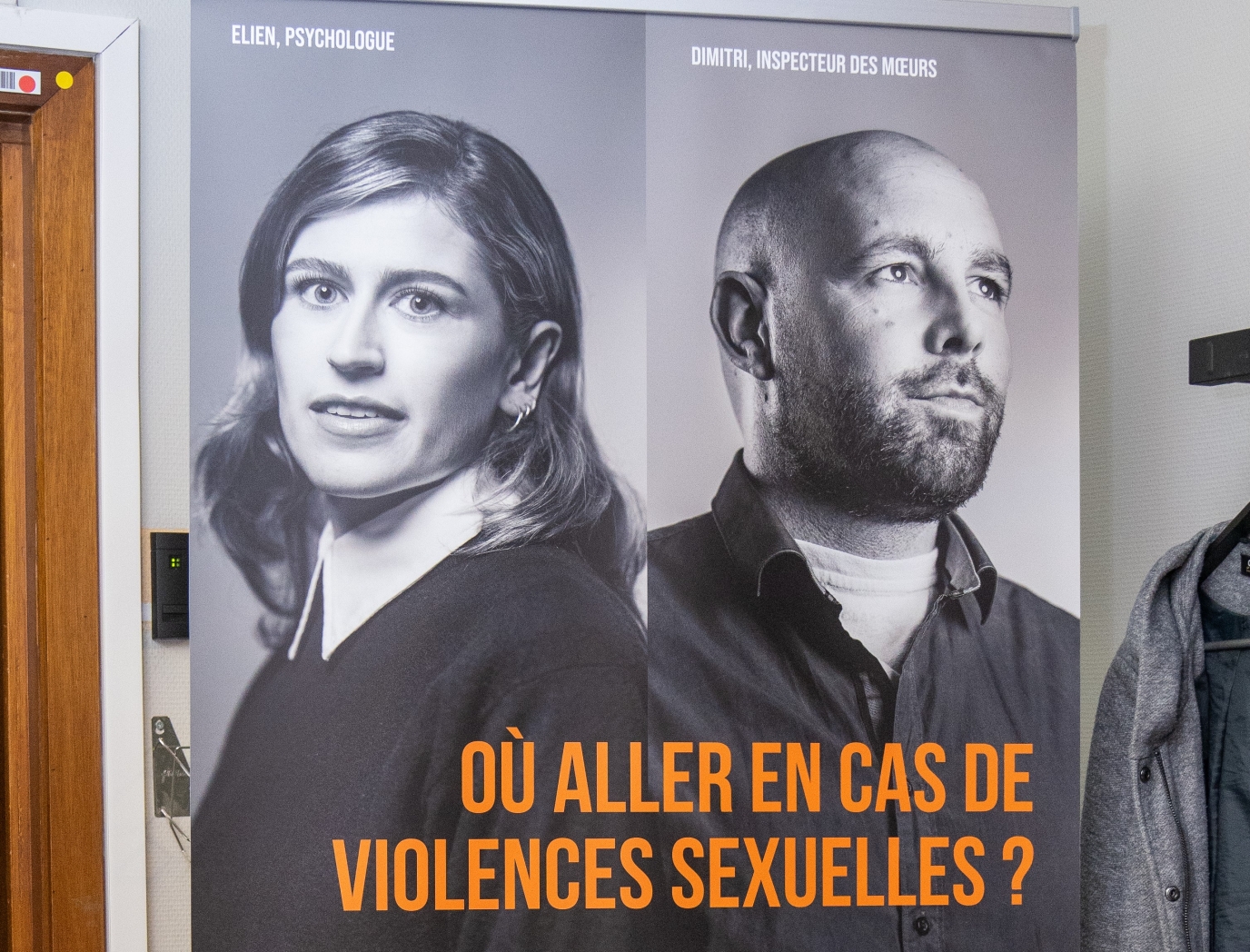The legal anchoring of our Belgian Sexual Assault Centres provides more stability and guarantees their long-term functioning
On Wednesday 27 March, the committee Public Health and Equality approved the draft law to legally anchor the Belgian Sexual Assault Centres. This will ensure the long-term survival of the Centres in terms of organisation, funding and cooperation between hospitals, police and public prosecutors.

Secretary of State for Gender Equality, Equal Opportunities and Diversity Marie-Colline Leroy said, "This legal regulation is the culmination of years of hard work to expand the Sexual Assault Centres in our country and make them a permanent structure. It is also a great recognition of the hard work of all employees and stakeholders who work day and night to provide the best possible care and assistance to victims of sexual violence. Moreover, all attention can now go to the shelter and greater awareness of the sexual assault centres so that every victim knows that when something so terrible happens, there is a place they can go."
A Sexual Assault Centre is a unique partnership between a hospital, police forces and the prosecution with the aim of providing holistic shelter and care to all victims of sexual violence. Currently, our country has 10 centres and the government released additional funds for three new centres. In doing so, the government is fulfilling its promise: to ensure that every victim can find a Sexual Assault Centre less than an hour's drive from home. The draft law voted on today gives additional legal certainty to Belgian Sexual Assault Centres by giving the new aspects of operation an explicit legal basis.
Victims take centre stage and receive free care
The new draft law outlines the functions of each partner in a centre, to jointly ensure multidisciplinary care for victims free of charge, without discrimination. This includes medical care, a forensic examination, clinical psychological support, the ability to file a complaint and be interviewed by a specially trained police officer. Victims can count on the care they receive being completely free and may be accompanied throughout the process by a support figure of their choice. Other rights of victims and the protection of their privacy, intimacy and personal data are also regulated in the draft law.
The draft law also defines the sexual violence targeted by the Sexual Assault Centres and the services provided depending on the stage the victim is at (7 days or less after the sexual violence occurred; more than 7 days and less than 30 days or more). Victims are asked to go to the centres as soon as possible so that they can be taken care of as soon as possible and so that, if the victim wishes, the necessary evidence can be collected as soon as possible. Thanks to the law and at the request of victims, this evidence can be kept for up to one year, giving the victim time to decide whether or not to file a complaint with the police.
Greater stability for the Belgian Sexual Assault Centres
One Centre per prosecutor's office may be established. The draft law describes the selection of the centres, the definition and description of the requirements of the different profiles of the staff, how the cooperation between the different services will take place, the new practices including the preservation of evidence, the financing of the different partners and the possibility of suspending cooperation if obligations are not met. Further modalities will be laid down in royal decrees.
The Institute for the Equality of Women and Men is responsible for coordinating and evaluating the cooperation of the centres. The draft law also regulates the processing and retention of personal data.
Government makes Belgian Sexual Assault Centres a spearhead of its policy against violence on women
When the Vivaldi government took office, our country had only three Sexual Assault Centres. Today, there are 10. The government, at the behest of the competent secretary of state for Gender Equality and Equal Opportunities, along with the ministers of Health, Home Affairs and Justice, immediately recognised the important and unique work being done by the centres and worked to provide the right framework and funding for the Belgian Sexual Assault Centres.
During the 2024 budget negotiations, an additional six million euros was released to open three new centres so that every victim has a shelter close to home. A national campaign to raise awareness of the centres followed.
Great recognition for staff and victims' needs
The law voted on today is the culmination of the federal government's determined work to structurally entrench Belgium's Sexual Assault Centres. It is a sign of appreciation for the hard work of the hospitals, police and prosecutors' offices to accommodate and help victims in the best possible way."
In 2022, 3,287 victims came to the centres. And this number is even higher for 2023, according to the Gender Equality Institute. In 2023, 4226 people knocked on the door of an centre, an increase of more than 28%.
State Secretary Leroy: "These staggeringly high figures, which are probably just the tip of the iceberg, show the distress of Belgium's Sexual Assault Centres. Every victim of sexual violence is one too many. When victims fall, they need to be taken care of and further assisted in the most professional way possible. Our centres offer highly efficient cooperation between hospitals, police and public prosecutors. This legal embedding is a great recognition of their work and the needs of victims. With this, our country is already taking another big step forward in combating sexual violence, which mainly affects women."
Annelies Verlinden, Minister of the Interior: "Victims of sexual violence can rest assured that they will be received and helped in a professional manner in the centres spread throughout the country. Thanks to their specialised training, police vice inspectors, for example, also make an important contribution in the initial reception of victims when they report to a sexual assault centre. With a solid and legal framework, we are now also taking the necessary steps to perpetuate the structures and operation of our centres."
Paul Van Tigchelt, Minister of Justice: "Every day, more than ten victims of sexual violence report to one of the Sexual Assault Centres in our country. These are frightening figures, even though we know that many victims still do not dare to report the crime out of fear or shame. Yet we see that the reporting rate is on the rise. In the first 10 months of 2023, more victims already found their way to a Centre than in the whole of 2022. Thanks to the forensic way of working, we are now collecting more and better evidence to convict offenders. Victims also receive better care and counselling. Our approach to sexual violence with our Centres works and it is a good thing that we are structurally anchoring it in law. "
Frank Vandenbroucke, Minister of Social Affairs and Public Health: "Victims of sexual violence can now go to a Sexual Assault centre. There they receive the care they need in a safe environment. The structural anchoring of our centres ensures that the victims and the professionals who work there can always count on good support. That way, that care remains guaranteed. It is one of the most important dossiers of this legislature".
The legal embedding of the Belgian Sexual Assault Centres should be seen in the light of the obligations arising from the Council of Europe Convention on preventing and combating violence against women and domestic violence (the Istanbul Convention), ratified by Belgium in 2016. Article 25 of this Convention requires member states to set up centres for urgent assistance to victims of sexual violence.
The draft law, which was approved in committee after a first reading, will now be submitted to parliament.


